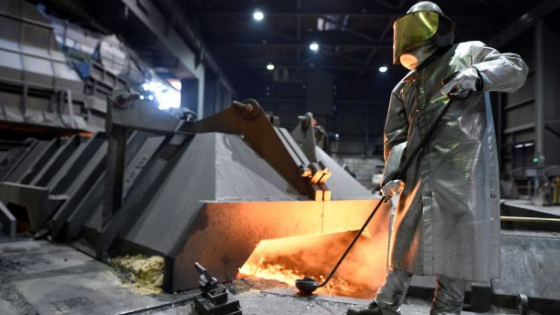[Ruth Bender | Feb. 5,2019 | WSJ]
The policy would allow the country to take stakes in strategically significant businesses to protect them from foreign takeovers. It also would call for tweaked national and European antitrust rules to encourage the creation of national or European champions to take on Chinese or U.S. behemoths.
The industrial strategy—the first of its kind by a postwar German government—marks a U-turn for a country that, at least in words if not always in deeds, has long insisted markets should be free and companies were best placed to make their own decisions.
The announcement came as free-market economic thinking is on the retreat around the world amid an accelerating backlash against globalization, especially in the West. U.S. President Donald Trump and President Emmanuel Macron of France are among the political leaders pledging to protect their economies from what they see as unfair competition from countries such as China, where capitalism and heavy-handed state intervention in the economy often go hand-in-hand.
In Berlin, one indicator of the changing mood has been the government’s increasingly vocal criticism of the European Union’s antitrust authorities ahead of their expected decision to ban a rail merger between Germany’s Siemens AG and France’s Alstom SA, the goal of which was to better compete with the Chinese.
The rise of populist movements, whose discourse is often highly critical of free markets and open trade, also has pressured centrist governments in Europe to adopt protectionist and dirigiste policies that promise to protect voters against the rigors of breakneck global competition.
Presenting the new policy, dubbed National Industry Strategy 2030, German Economics Minister Peter Altmaier said it marked the end of “a Germany that passively watches a development that’s already in full swing in the U.S., in Japan, in China.”
The 21-page paper references both Mr. Trump’s “America First” drive to protect traditional industrial sectors such as steel and car-making and China’s “Made in China 2025” campaign to become a leader in areas from artificial intelligence to high-end robotics.
“If individual countries or companies try to take the lead and expand their market positions, we also have the right and a duty to defend ourselves,” Mr. Altmaier said.
Germany’s influential industrial lobby BDI welcomed the strategy, calling it a “long overdue broad industrial concept.”
Many economists were more circumspect. Lars Feld, a prominent member of a council of economists that advises the government on policy, told German daily Die Welt that the strategy was “at best, French economic tradition, at worst, planned economy.”
Mr. Altmaier said his plan would ensure that Germany could maintain and expand the “enormous prosperity” it had achieved over the past 70 years and denied that it conflicted with free-market economics. He said the state should only be allowed to buy stakes in “very crucial” cases and only for a limited time.
Mr. Altmaier said the long-term success of companies such as industrial conglomerate Siemens, steel-to-elevator group Thyssenkrupp AG , car makers and Deutsche Bank AG was in the national and economic interest of the country.
He said the details of the plan would be finalized in talks with business executives, lawmakers and union representatives. The ultimate goal, he said, would be for Europe to agree on a joint industrial policy.
Write to Ruth Bender at [email protected]













